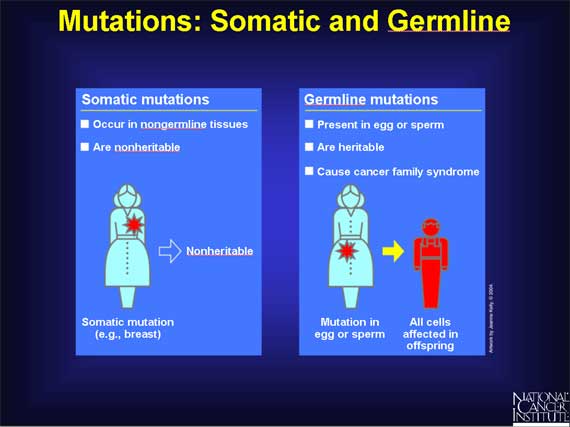|
Most cancers arise from several genetic mutations that accumulate in cells of the body over a person's lifespan. These are called somatic mutations, and the genes involved are usually located on autosomes (non-sex chromosomes). Cancer may also have a germline mutation component, meaning that they occur in germ cells, better known as the ovum or sperm. Germline mutations may occur de novo (for the first time) or be inherited from parents' germ cells. An example of germline mutations linked to cancer are the ones that occur in cancer susceptibility genes, increasing a person's risk for the disease.

< Previous | Index | Next Slide > |